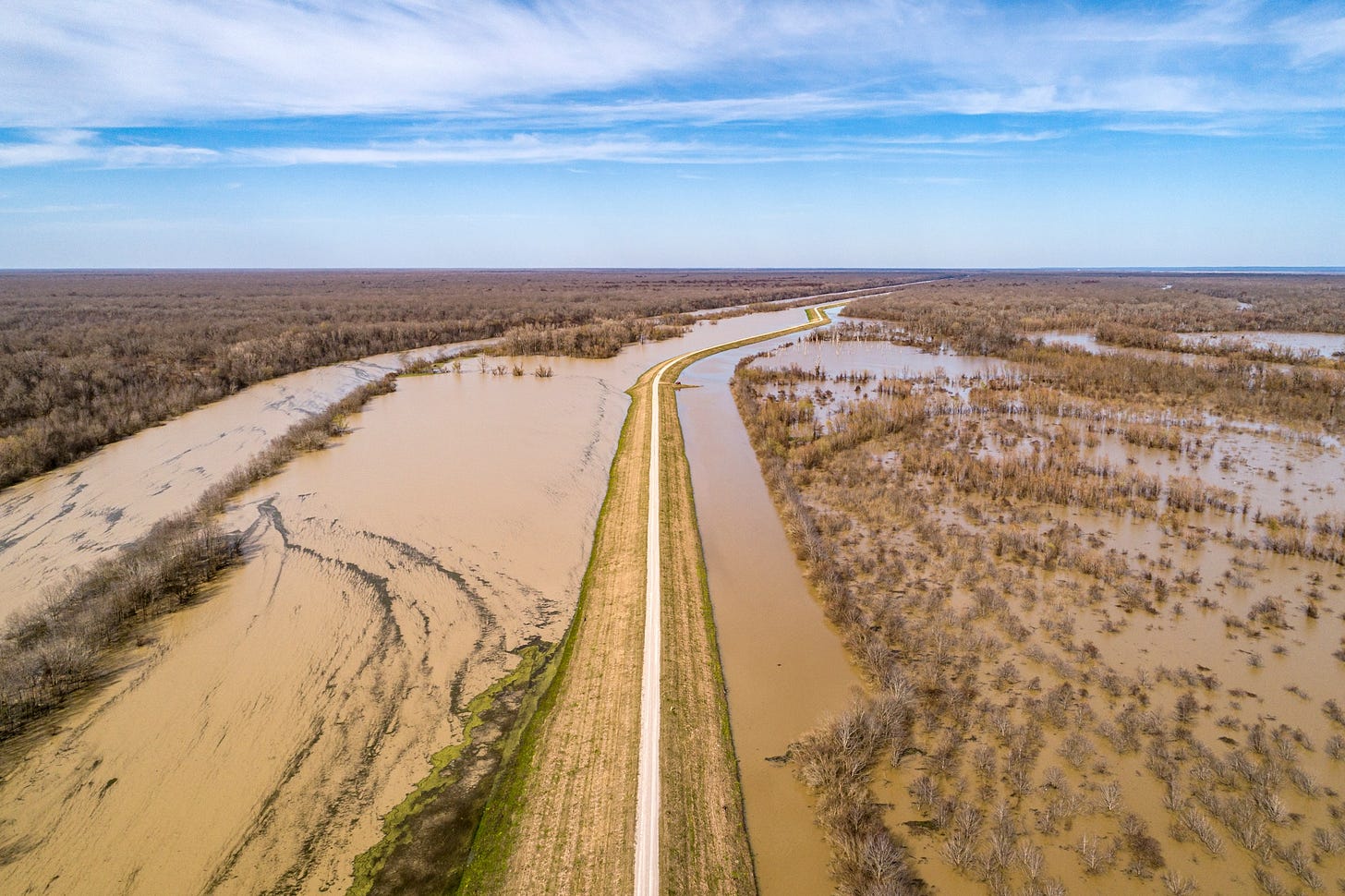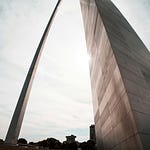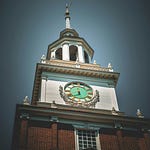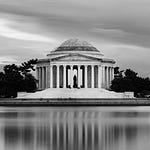
“Drain the swamp” is a metaphor likening the government to a swamp that needs to be drained to remove undesirable elements.
But who’s the swamp? It’s not the people, and characterizing it as such is political theater. Most Americans who work in government want to make life better for other Americans.
The real swamp is the self-serving rules—government working for itself, not the people. We need to drain this swamp.
The Chevron Doctrine
In March 2018, the National Marine Fisheries Service (NMFS) enacted a rule requiring fishermen to pay for at-sea monitors in the New England groundfish fishery. The intent was noble: to enhance the fishery's sustainability.
Fishermen did not object to the observers. No one is more invested in the sustainability of fisheries than those who rely on them. Both NMFS and the fishermen aim to improve the resource's sustainability.
However, as private small businesses, the fishermen opposed the financial burden of paying for regulatory observers. These observers weren’t aiding the fishermen with their jobs. Regulatory observers are a governmental function; if they are truly necessary, taxpayer dollars should fund them.
Said another way: if it’s not vital enough to justify taxpayer funding, the government should not be involved.
The fishermen challenged the NMFS rule in court, arguing that the Magnuson-Stevens Fishery Conservation and Management Act didn’t direct the fishermen to foot the bill for regulatory observers. The United States District Court for the District of Columbia gave the initial ruling, and the United States Court of Appeals for the District of Columbia Circuit gave a second ruling. Both courts sided with the NMFS, upholding the rule on the grounds that the agency's interpretation of the rule was reasonable. The courts applied the Chevron deference, a principle stemming from the US Supreme Court's Chevron USA vs. Natural Resources Defense Council decision.
Under the Chevron doctrine, courts defer to a federal agency's interpretation of an ambiguous statute that it administers, provided the interpretation is reasonable.
The fishermen appealed the ruling. The US Supreme Court agreed to hear the case, and in January 2024, the high court heard arguments in Loper Bright Enterprises vs. Raimondo. The court should weigh in this summer, and many experts believe the US Supreme Court will overturn or severely weaken the Chevron deference.
Despite being under the radar, Loper Bright Enterprises v. Raimondo has the potential to become one of the most consequential Supreme Court decisions in decades. The decision could reshape US Executive Branch regulatory authority and administrative law. For example, the Environmental Protection Agency relies on Chevron deference to interpret and enforce environmental laws. Department of Health and Human Services enforces provisions of the Affordable Care Act using the Chevron doctrine. The Department of Labor and the National Labor Relations Board use Chevron deference to implement and enforce labor laws.
In short, every federal agency uses Chevron to interpret statutory mandates to guide national affairs. Chevron allows agencies to create laws, bypassing the legislative process and overstepping constitutional boundaries. Chevron also limits the judiciary's role in checking and balancing the executive branch's power. The court’s deference to agency interpretations precludes them from thoroughly reviewing whether those interpretations align with congressional intent or constitutional principles.
Overturning Chevron would strongly benefit Americans. It would promote federal agencies to work for the people and not for themselves, and it would restore the balance of power intended by the Constitution.
Making Federal Agencies Work for the People
Federal agencies are meant to serve a public purpose.
But a reality of government is that once you create an organization, its primary purpose becomes to sustain itself. While not necessarily bad, the primary purpose of a federal agency is not to preserve itself. It’s to serve Americans, even at the expense of itself.
No federal agency makes rules that make life for itself more difficult, even if those rules would benefit Americans. Federal agencies aim to be more efficient and fulfill their mandate. Sometimes, this means at the expense of Americans.
An example? It would be much better for America if the US Bureau of Land Management (BLM) installed solar panels on the endless landscape of federal parking lots rather than our fine American wildlife lands. But BLM intends to install solar panels on nearly a million acres of public lands, threatening wildlife habitat and natural beauty.
Congress did pass Public Law 116-260, authorizing the executive branch to support solar technology and its use on public lands. However, the law also states the executive branch must…“reduce and mitigate potential life cycle negative impacts of solar energy technologies on human communities, wildlife, and wildlife habitats.” The terms “reduce and mitigate” are ambiguous, but the best way to mitigate adverse impacts on wildlife is to leave the land undisturbed.
Putting solar panels atop parking lots would cost more and be less efficient, but it’s better for America than removing wildlife habitat.
Overturning Chevron would require federal agencies to follow the exact language of congressional laws more closely rather than interpreting ambiguous statutes in a way that expands their regulatory scope. This would lead to agencies being more accountable to Americans. Agency actions would have to align more directly with the legislation passed by elected officials. This alignment would ensure agencies operate within their designated boundaries, prioritizing public interest over bureaucratic agendas.
Further, without Chevron deference, agencies would need to provide more rigorous justifications for their rules, making their decision-making processes more transparent. This transparency could enable better public scrutiny and participation in the regulatory process, enhancing democratic governance.
Restore a Balance of Power
The US Constitution, inspired by philosopher John Locke, established a democratic republic with a balance of power divided between three branches instead of a monarchy. Chevron throws off the balance by enabling executive branch agencies to make laws. If one of those branches can make and execute laws and appoint justices to sit on the courts that defer to that branch, the President becomes a king.
America owes allegiance to no king.
Article I, Section 1 of the Constitution states that all legislative powers reside in Congress, reinforcing the premise that agencies should not legislate from the executive branch. Further, the judiciary's role is to interpret the law independently without deferring to the executive branch’s interpretations.
This principle is decisive to our national identity, as the foundation of America is individual liberty.
In Federalist Paper No. 47 (1788), James Madison outlined the idea that power concentration in the hands of a few threatens individual liberty. Madison continued the premise in Federalist Paper No. 51 (also 1788). It builds on Federalist 47 by stressing the need for each branch to have both the constitutional mechanisms and personal incentives to check the powers of the others.
Despite these clear national guidelines, the judicial branch currently defers to the executive branch to decide what the legislative branch intends in legislation. This gives the executive branch the authority to make and enforce laws (through interpretation).
Overturning Chevron restores the Constitutional balance of power. Congress makes laws, the executive branch executes them, and the judicial branch interprets ambiguous laws. This balance of power protects against government tyranny.
We need to drain the swamp. The swamp isn’t the people who work in government; it's the overreaching regulations that serve agencies rather than the people.
Federal agencies need to work on behalf of the people, not the agency.
This balance of power is a decisive tenet of our democratic republic. One that we need to restore.
May God bless the United States of America.














Drain the Swamp